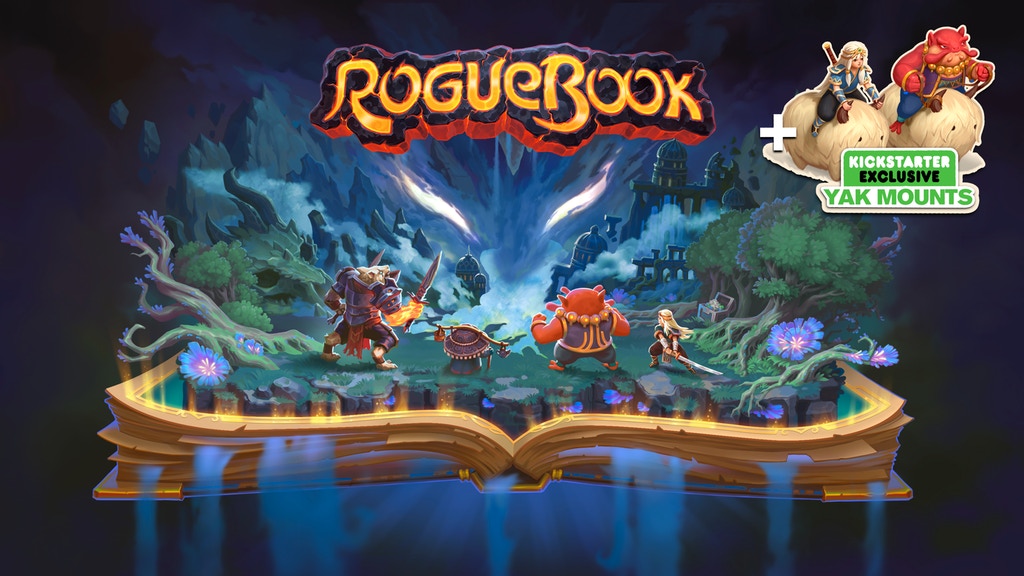
Back in 2017, Abrakam released the full version of their digital card game, Faeria. Set in a colorful and charming fantasy world, Faeria offers a few unique takes on the digital card game genre, and I played quite a bit of it back when it first came out.
Now, this small indie studio from Belgium is working on their next game, a deckbuilding roguelite named Roguebook that is set in the same world as Faeria.
It’s in its final week on Kickstarter right now, and the devs were kind enough to give me access to the current alpha build of the game. Here’s my first impressions after a few hours.
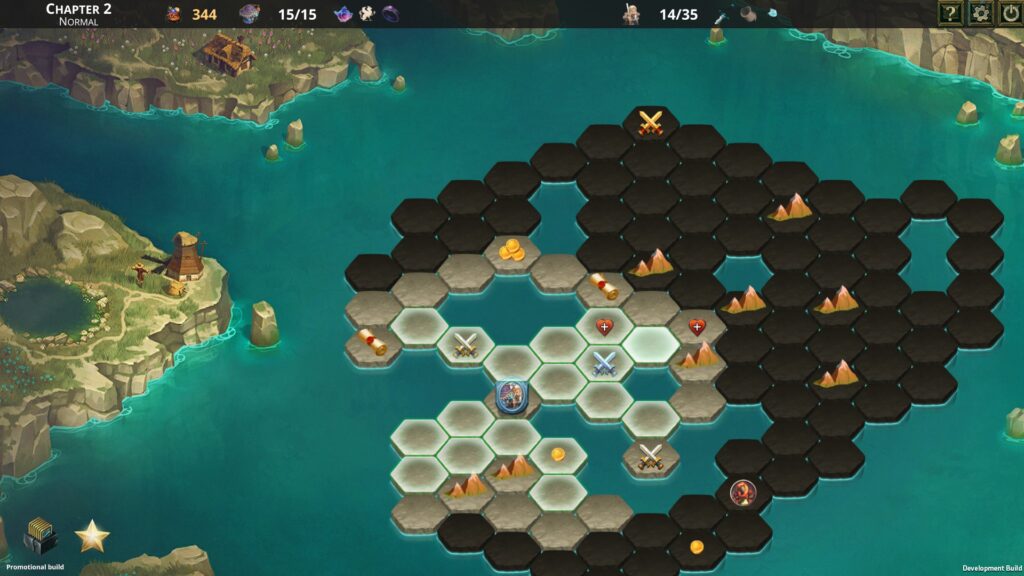
In Roguebook, you’ll build a party of two adventurers and travel around a hex-based map covered in various encounters. You’ll find random events that offer you a few choices that can be harmful or beneficial, chests that contain new relics or gems, merchants, gold piles, health upgrades, and battles.
Throughout your journey, you’ll upgrade your two characters by acquiring relics and building a deck of cards that represent their different powers and attacks.
Each chapter is capped off with a challenging boss battle that you hopefully prepared well for, because they’ll probably beat the crap out of you.

Fans of Slay the Spire will notice some immediate similarities between the two games. A quick glance of the screenshot mock-ups on the Kickstarter page will look very familiar to anyone who has even rudimentary knowledge of Mega Crit’s hit game that left Early Access back in January of this year.
After playing for a while, I can tell you that Roguebook has many mechanics that work almost identically to Slay the Spire, but there’s plenty of interesting new ideas thrown in to help differentiate the two.
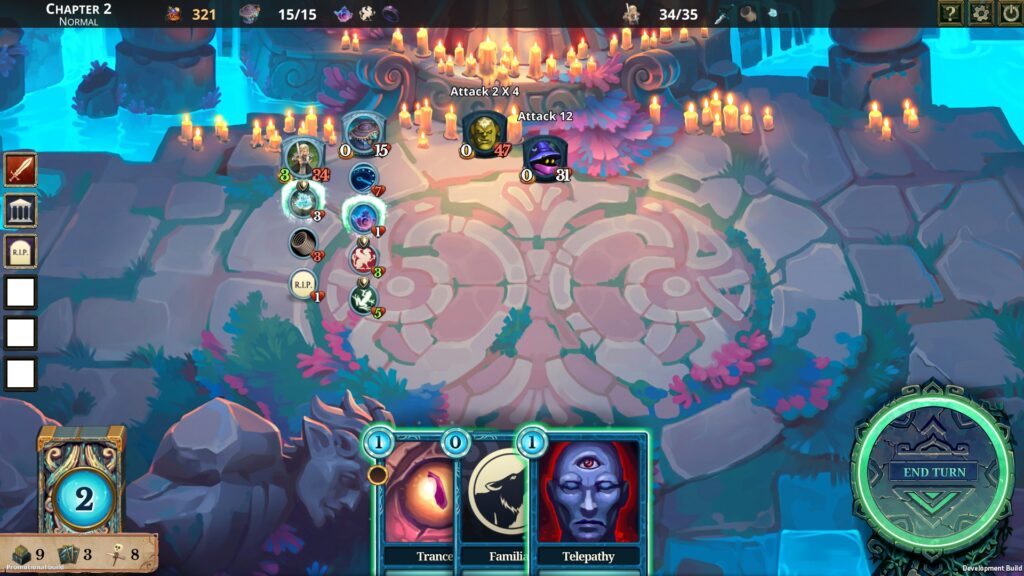
The biggest of these differences is the fact that you control two characters instead of just one. This adds a much different dynamic to the game in a number of ways, chief among them being positioning.
The leading character is the most vulnerable to enemy attacks, and your two characters will swap positions whenever you use one of their cards or abilities.
Some cards and abilities can only be used when the character is in a certain position. For example, Sharra’s starting relic deals 8 damage to the lead enemy, but only when Sharra herself is leading.
Swapping the positions of your characters plays a big role in your strategies and decisions, and this can dictate what relics you will equip on which character.
The fact that you are building two characters also gives you tons of room to experiment with builds and figuring out interesting ways that they might interact. Sometimes when drafting new cards, you’ll have to choose which character you’ll be drafting cards for as well.
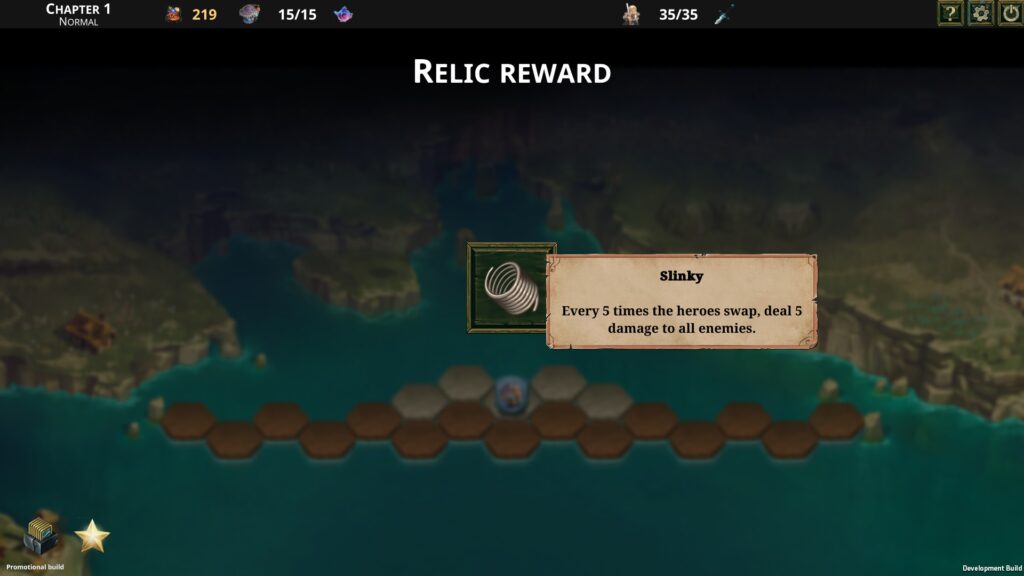
The other big difference between Roguebook and Slay the Spire is the introduction of gems. In Slay the Spire, you can upgrade cards at campfires or in some random events.
This generally involves just giving a specific card a straight, linear upgrade. Roguebook instead uses a gem system kind of like in many loot-driven action-RPGs. Many cards in the game have a socket, and during a run you’ll find different gems of varying rarities.
You can socket these gems into cards to add additional effects, like +2 damage, card draw, duplication, and so on. It’s a cool idea, and I can see how it will add even more depth to deckbuilding in the final game.
Roguebook is still very early in development, but I can already see a ton of potential here. As someone who really likes Slay the Spire, I’m happy to see more roguelite deckbuilding games entering the market.
Roguebook in particular already features a good mix of familiar mechanics and cool new ideas, and I’m really excited to see what the final product looks like.
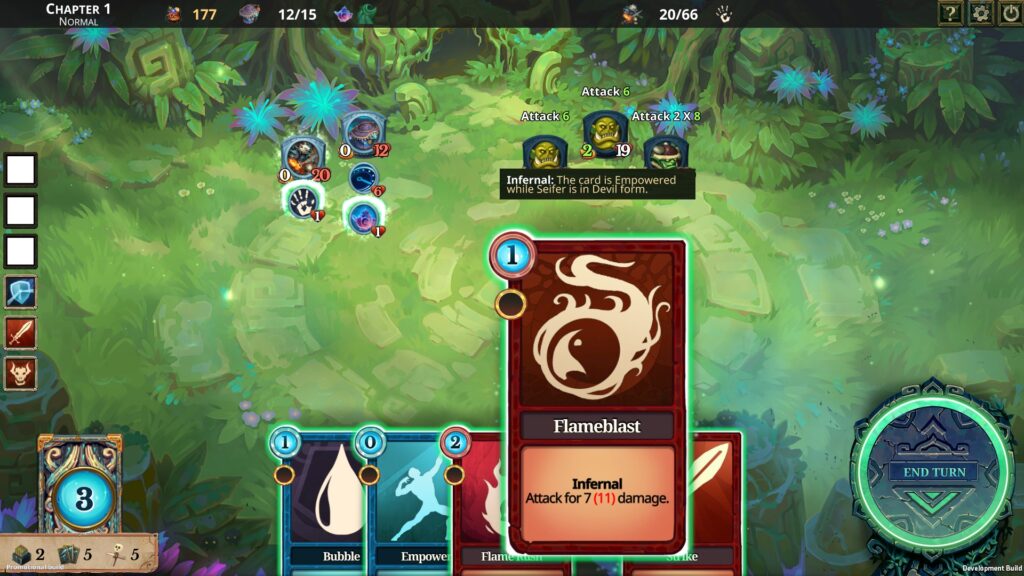
Roguebook is currently on Kickstarter, and at the time of writing this, the game is 84% of the way to its $68,116 goal with five days left. You can get a copy for $28, or $26 if you manage to snag an Early Bird pledge.
Abrakam is estimating an Early Access release date of February 2020, with a final release of May 2020, but as with any game this early in development those dates are subject to change.
Regardless of what you pledge, you’ll get access to the current alpha build within 24 hours of pledging. Even if you don’t pledge to the Kickstarter campaign, I highly recommend keeping an eye on Roguebook, especially if you love Slay the Spire.
Faeria is also currently 60% off as part of the Steam Summer Sale. It now uses a “buy upfront” model where you pay once for the game and its expansions and earn your cards in-game instead of buying booster packs with real money.